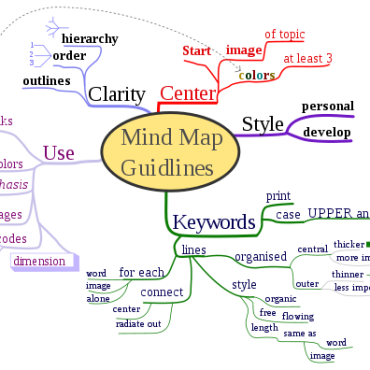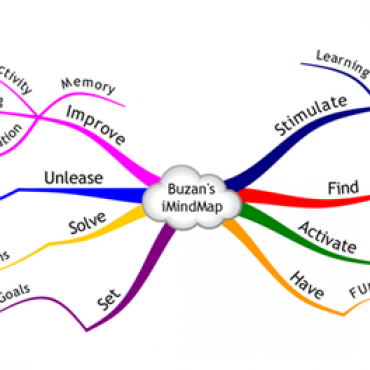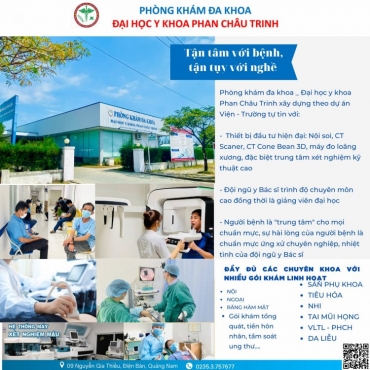- Healthcare
- Phan Chau Trinh University Hospital
- Phan Chau Trinh University Polyclinic
- TAM TRI QUANG NAM GENERAL HOSPITAL
- Tam Tri Hong Ngu International Hospital
- Tam Tri Cao Lanh General Hospital
- Tam Tri Đong Thap General Hospital
- Tam Tri Nha Trang General Hospital
- Tam Tri Sai Gon General Hospital
- Tam Tri Đa Nang General Hospital
Contact Admission
Higher education in the era of Industrial Revolution 4.0
Higher education in the era of Industrial Revolution 4.0
I think that the university needs to create an environment and encourage the development of curiosity and self-study ability. Only then will students be able to respond to rapid changes in their work environment and not be eliminated by society.
Saudi Arabia just donated the world's first citizenship to a robot named Sophia with artificial intelligence. Sophia is as capable of answering the conundrums of an MC as witty as an intellectual. This news surprised a lot of people who weren't in the IT industry. As a university educator, I have asked the question 'How should higher education change in response to such rapid changes in society, in the labor market?' is the question that almost all the higher education in America in all branches have been vigorously debating for so long. However, even in the US, university training programs have not changed fast enough to meet the needs of society. In Vietnam, it is even more difficult to want a change in the training program. But this is a very urgent job because it takes at least 4 years to train an engineer or bachelor. When students graduate, the labor market may have changed a lot. Let me give a typical example.
Artificial Intelligence (AI) is the brain of robots, which has not yet been put into training program for software engineers in most universities around the world. To study, you must graduate to graduate school at MS or PhD. Control theory in mechatronics, knowledge of controlling robot movements must wait until the last year of college in Mechanics, major in Mechatronics. Those are the two basic components for robot development that have to wait until the last year of university to know a little bit in the training program of specialized engineers in America. Why so? Because the curriculum designers are old and conservative people who think that students need to have other basic knowledge before learning new ones. The important question is whether such basic knowledge is really necessary in the future or can it be replaced by other knowledge? For example, in my generation, doing math must know how to quickly stretch, add, subtract, multiply, and divide by hand. Now that knowledge is really not necessary. Do you feel that even the US has not prepared in time for Industry 4.0?
What should university education be like in the era of Industry 4.0. I think that university needs to create an environment and encourage the development of curiosity and self-study ability. Only then will students be able to respond to rapid changes in their work environment and not be eliminated by society. Let me share a good example that I have applied to my son, Takara.
Takara this year is early 3rd year in college and is studying Mechanics (mechanics). In the curriculum, Takara just finished physics and just started to major in mechanics. Programming in the curriculum is a little bit of Mathlab. I advise Takara not to focus too much on grades as long as they stay above 3.0 if he wants to continue his graduate studies. The rest of the time I went online to learn and do things to satisfy my discovery. Just now, Takara surprised and proudly told me to develop the right direction.
Takara self-taught AI - a deep convolutional neural network (I don't really know what it is). During the Hackathon Machine Learning Division at the University of Utah, in 24 hours alone he designed an IoT device consisting of a board with a web cam projected onto his cell phone and then coding to teach it to identify women. beautiful as judged by him in 4 hrs. Finished use this device to visit the Tider (Online dating web site) to test. The 85% rating device was accurate compared to Takara's. So Takara can filter pretty women in the web quickly! With this achievement Takara ranked second in the competition but that was not the problem. What I want to point out here is that all of this knowledge Takara is self-taught and is not included in the curriculum. With the level of a first year 3 student, it is impossible to do this.
The question arises: What should the output quality of higher education be? Should they be bachelor degrees, engineers with high theories and scores or those who dare to explore, dare to learn, dare to fail?
- Professor Trương Nguyện Thành -
Other healthcare
- TAM TRI QUANG NAM GENERAL HOSPITAL ( 10:24 - 11/07/2023 )
- Tam Tri Cao Lanh General Hospital ( 15:08 - 20/10/2022 )
- Tam Tri Hong Ngu General Hospital ( 15:05 - 20/10/2022 )
- Phan Chau Trinh University Hospital ( 14:04 - 29/04/2022 )
- Phan Chau Trinh University Polyclinic ( 13:56 - 29/04/2022 )
- Tam Tri Dong Thap General Hospital ( 11:03 - 29/04/2022 )
- Tam Tri Nha Trang Genaral Hospital ( 10:55 - 29/04/2022 )
- Tam Tri Sai Gon Genaral Hospital ( 10:38 - 29/04/2022 )
- TAM TRI DA NANG -- PROUD TO BE YOUR FAVORITE HEALTHCARE PROVIDER ( 10:31 - 29/04/2022 )
- Development history of world medicine ( 11:44 - 13/10/2017 )








